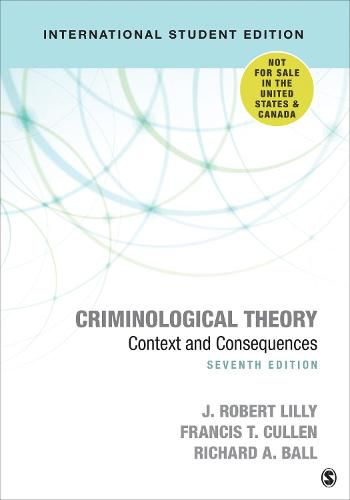Readings Newsletter
Become a Readings Member to make your shopping experience even easier.
Sign in or sign up for free!
You’re not far away from qualifying for FREE standard shipping within Australia
You’ve qualified for FREE standard shipping within Australia
The cart is loading…






The seventh edition of Criminological Theory: Context and Consequences builds on its prior success with updated coverage of criminological theory and a fresh look at policy implications. The new edition continues to offer a rich introduction to how scholars analyze crime in a clear, accessible text which moves readers beyond commonsense knowledge of crime to a deeper understanding of the importance of theory in shaping crime control policies.
This thoroughly revised edition covers traditional and contemporary theory within a larger sociological and historical context, and offers diverse coverage of major criminological theories includes perspectives ranging from biosocial theories to cultural criminology. The development of theories is covered within a broader sociological and historical context. The authors explore policy implications and applications. Chapter-opening photos of key theorists help motivate the discussions that follow, while a unique chapter on white collar crime is indicative of the comprehensive theory coverage offered in this book.
$9.00 standard shipping within Australia
FREE standard shipping within Australia for orders over $100.00
Express & International shipping calculated at checkout
The seventh edition of Criminological Theory: Context and Consequences builds on its prior success with updated coverage of criminological theory and a fresh look at policy implications. The new edition continues to offer a rich introduction to how scholars analyze crime in a clear, accessible text which moves readers beyond commonsense knowledge of crime to a deeper understanding of the importance of theory in shaping crime control policies.
This thoroughly revised edition covers traditional and contemporary theory within a larger sociological and historical context, and offers diverse coverage of major criminological theories includes perspectives ranging from biosocial theories to cultural criminology. The development of theories is covered within a broader sociological and historical context. The authors explore policy implications and applications. Chapter-opening photos of key theorists help motivate the discussions that follow, while a unique chapter on white collar crime is indicative of the comprehensive theory coverage offered in this book.